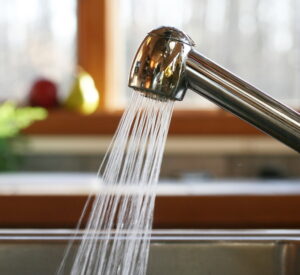Living in Tampa can sometimes feel like living in a vacation paradise, but there are some downsides. One is hard water, which means water with a high level of dissolved minerals, specifically magnesium and calcium. The water hardness in Tampa is classified as “very hard.” According to the United States Geological Survey (USGS), water is “very hard” if it has a concentration of more than 180 milligrams of calcium per liter.
Before you panic, you need to know that hard water isn’t dangerous to drink. The minerals in hard water are natural and found in many foods and liquids you regularly consume. In fact, you never want these minerals completely absent from your drinking water, since they help with your daily intake.
We offer installation of water softeners in Tampa, FL that can reduce hard water levels in homes. You might wonder why you would need to soften your water if it’s perfectly safe to drink. There are some good reasons: extremely hard water doesn’t affect your body, but it can do terrible things to parts of your house. For instance, knowing when to finally replace old plumbing fixtures can save you from recurring issues caused by hard water damage.
Pipe damage
One of the major problems with hard water is that the high mineral level will leave behind limescale deposits on the inside of pipes. A layer of calcium and magnesium build-up inside pipes over time will contribute to high water pressure, slow drains and clogs, and early pipe deterioration.
Appliance damage
Water-using appliances in your home, such as laundry machines, dishwashers, and water heaters are susceptible to damage from hard water deposits. The water heater is the most vulnerable to damage because the heat causes minerals to quickly dissolve out of the water and turn into limescale that can ruin the water heater. Tankless water heater intakes will rapidly clog up because of hard water—if you use a tankless water heater, you almost certainly need a water softener to protect it. Additionally, our guide on why we recommend getting a whole-house water filtration system explains more about protecting your plumbing and appliances.
Difficulty cleaning
High mineral content in water makes it more difficult to work up a lather of soap. This means you’ll have a harder time with getting clean while bathing, showering, cleaning dishes, and other cleaning tasks.
Film on surfaces
Hard water produces more soap scum and leaves deposits on surfaces. You’ll notice that glass surfaces will have a film over them, and surfaces you clean, such as marble, wood, and granite, will have a dullness to them rather than a nice shine. You’ll find that your glassware will come out of the dishwasher with noticeable streaks on it.
Dry skin and flat hair
The deposits from hard water will also form on your skin and get into your hair. Your skin will feel tight and itchy, and hair washed in hard water will often be flat and stringy.
Washed out colors in clothes and fabrics
Running loads of wash using hard water will start to bleach out the color from brighter fabrics, as well as give material a coarser texture.
You can see that you don’t want hard water in your house, and you only need to call us to take steps toward getting water hardness down to normal levels. If you’re dealing with persistent issues like leaks or damage, our resource on what to do in a leaky situation can guide you through immediate steps while addressing hard water concerns.
Call on The Clean Plumbers—The One With the Bubbles on the Truck!

